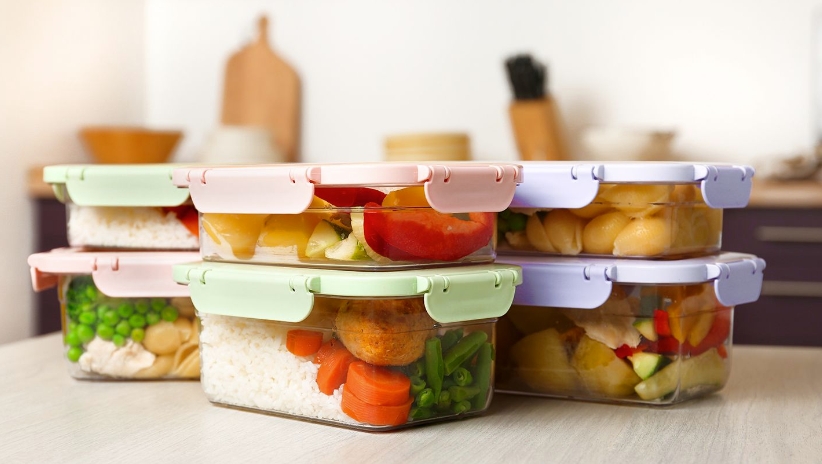Stress stealing your appetite? Three tips to help you regain your appetite!

If I’m stressed about meeting deadlines at work or wracking my brain over a conflict with a friend food becomes an unimportant matter. Sometimes, my stomach is feeling a bit full (even even if I’ve not eaten for a while) which makes my regular breakfast bagel with hot sauce and eggs suddenly not appealing. At other times it’s because my anxiousness becomes so overwhelming that I feel nauseated.
There are numerous ways stress can cause havoc for your physical well-being in a variety of ways, and although stress can hit the stomach particularly and causes a variety of symptoms, they will be different for every person. It’s the same with regard to appetite: “The impact of stress on appetite is extremely complex and can be different for each person,” Christina Gentile, PsyD who is a board-certified clinical health psychologist who specializes in digestive disorders in UCLA Health, tells SELF.
Certain people, for example are craving more food in times of stress due to cortisol (the “stress hormone”) may cause you to seek out quick energy sources (namely, carbs) according to her. Others may lose their appetite altogether since other hormones your body releases under stress (like adrenaline and corticotropin-releasing hormone) can suppress hunger, research shows. “People could also suffer from digestive symptoms that are triggered by stress like nausea, discomfort, or stomach upset and this can make it physically difficult to eat.” Doctor. Gentile adds.
It’s not an issue even if you’re prone to delay eating meals or your breakfast until you’ve settled to your level. However, not eating regularly could cause mood shifts as well as fatigue and further feeling sick. How do you get into that cheese and ham panini, for example, when there’s nothing (not not even the scent of perfect golden bread) appeals to you? Doctor. Gentile has three tips to ensure you’re getting all the nutrition you need without making your stomach discomforts more severe.

- Before eating take a moment to calm your mind through this simple breathing practice.
The primary reason for stress in short-term situations is that it can cause an increase in appetite as per Dr. Gentile: Unnerving situations (like being in the middle of a job interview or perhaps your first date of the year) trigger your sympathetic nervous system that controls your “fight or flight” reaction and can slow down digestion. In order to counter this it is possible to take a look at diaphragmatic breathing which is also known as deep breathing or belly breathing that activates the parasympathetic nervous system. It will help you enter “rest and digest” mode.
It’s Dr. Gentile likes this tactic because it is a method you can employ almost any time and at any place, it just requires a couple of minutes and has been proven scientifically to decrease stress. The only thing you need to do is lay down and place one of your hands on your stomach right below your ribs, and your other hand on your chest. You then inhale through your nose, and then feel your stomach push the hand away–without shifting your chest. Then exhale with your lips that are closed (as as if you’re whirling). The practice of this for 5 minutes or more should ease your brain as well as your let your gut relax She says.
- Prepare ahead by stocking your fridge in a pantry of ready-to-go meals.
If I’m buried in the tax return process or recovering through a stressful disagreement with my partner and my partner, not only do my body not feel the need to eating, but making dinner can be a painful task. Instead of settling for eating a sluggish stomach the I should consult Dr. Gentile suggests a smarter strategy for those times of overwhelming keep a few convenient and simple meals on hand.
When faced with these scenarios, making a compromise between what you like as well as what’s gentle on your body is crucial. This means you should avoid a heavy quesadilla (which may feel uncomfortable in your stomach) or a dish that contains lots of fiber, like an enormous salad (which is sure to cause your digestion to be at work). Instead the doctor. Gentile recommends nibbling on boring but tasty snack foods or small meals, such as yogurt with fresh fruit, greek yogurt, chopped-up vegetables with the hummus you love and chicken, rice with the quinoa or snacks like peanut butter and crackers. (And If you’re in need of additional ideas, my favorite preferred choices are tofu with soy sauce Oats that have been left overnight as well as shakes of bananas with almond milk.)
They may not be like the most appealing or nutritious However, having several easily available and stomach-friendly snacks on hand or meals prepared in the fridge can make it much more likely you’ll consume some food that the doctor. Gentile says.
- Do not multitask when you are eating.
Whatever the food item or snack you pick you’ll want to “silence the notifications on your phone, shut off your laptop, and lie at a table when eating,” Dr. Gentile advises. So, you should avoid the urge to eat short bites at a business meeting for example and eat a snack as you go through your emails. Do at all times to be more efficient.
Doing your best to slurp food down your throat as you’re distracted is sure to create anxiety and cause stomach upset further The doctor. Gentile says. Instead, she recommends shifting your focus to the food in your bowl–the salty taste of popcorn for instance or the warm comfort of your white rice that you’ve steamed or the scrumptiousness of your juicy apple — and take your time as eating it.

The first thing to note is that studies have shown that taking your time chewing your food triggers digestion salivary enzymes that break up food particles into smaller pieces, which are simpler for your stomach to digest. (Taking large, fast bites however, on the other side, may trigger acid reflux according to SELF’s previous report as well as aggravate any stomach discomfort or nausea.) In addition, mindful eating could distract you from stressful thoughts as well as (like diaphragmatic breathing, which we previously mentioned) stimulate the body’s “rest and digest” response, according to Dr. Gentile adds.
One more important thing to remember The above tips could be helpful to help you deal with the odd anxiety-inducing moment, if anxiety is causing you to lose your appetite, it’s time to consult a doctor of primary care. They’ll test for you for anxiety-related disorders (which puts you in fighting or flight mode regularly) and assess if digestive issues are the result of another medical condition (like gastroparesis which occurs in the event that your stomach doesn’t eliminate food that it has consumed into the intestine of the small).
It may be helpful to consult the services of a counselor and get advice on evidence-based, more healthy ways of dealing with stress, in order to not need only rely on bland snacks and applesauce to calm your stomach knots.
